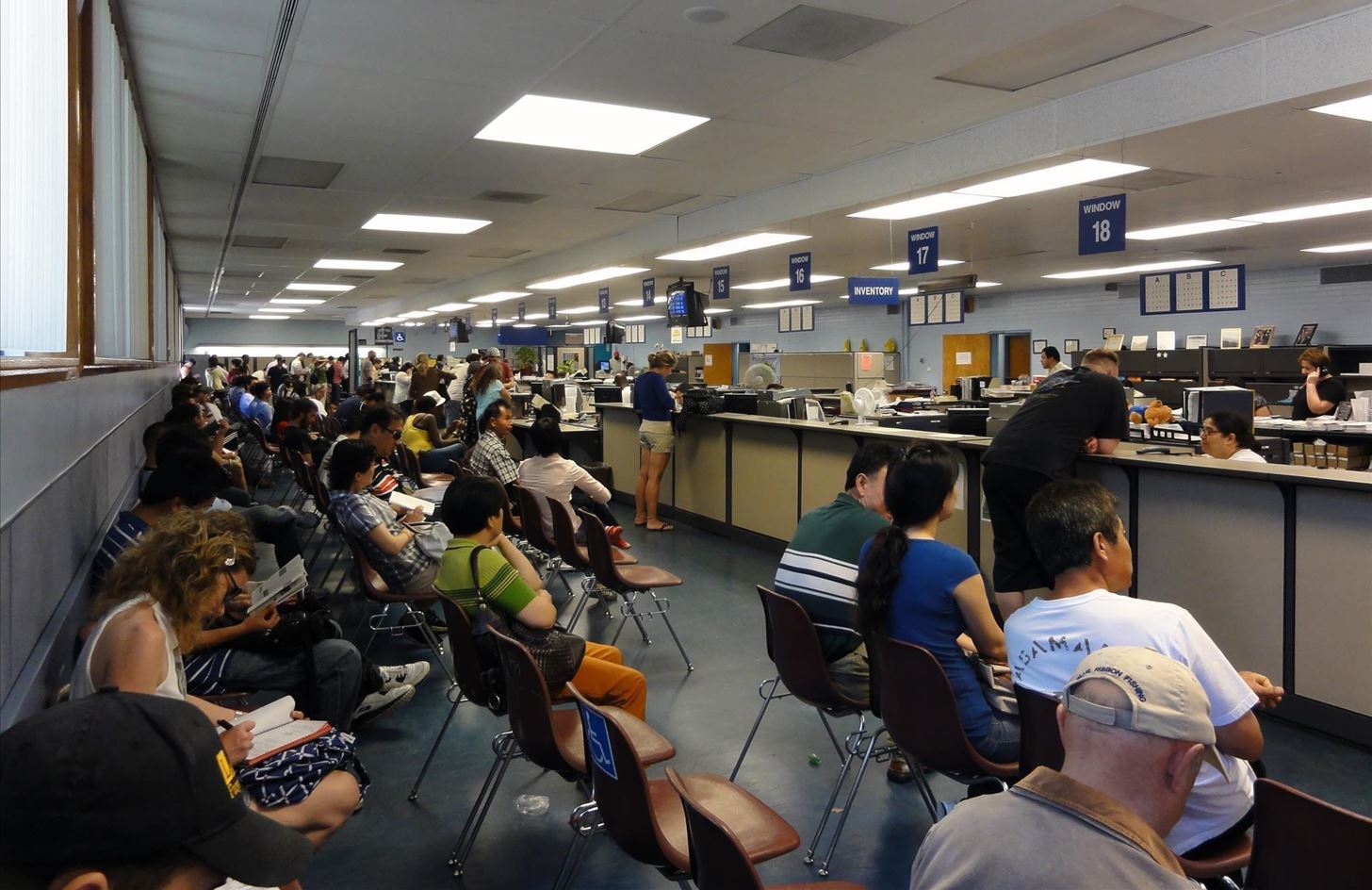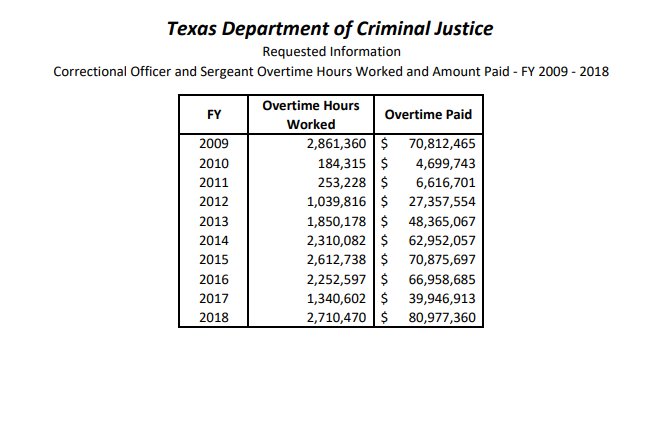Now that the most divisive presidential election in 50 years is over and, win, lose or (largely) draw, everybody can take a deep breath, it's time for criminal-justice reformers to peek our heads above the wreckage to see what remains of a state and local agenda after a tumultuous year and a grueling election season which, at the state level in Texas, resulted in a complete stalemate, from a partisan perspective.
Criminal-justice reform is the new Obamacare
It's been quite a year for criminal-justice reformers. And we've learned some things. Although the public doesn't like the phrase "defund the police," they tend to like all the policies that might allow police to be defunded. Grits sees this a bit like "Obamacare," which of course, really, was the "Affordable Care Act." Republicans branded it with a president who was unpopular with their base and then railed against it for years, passing dozens of weird, Pyrrhic votes to abolish it. For a while, "Obamacare" polled very badly.
But this election cycle, you saw bipartisan support in campaign commercials for most of the underlying policies "Obamacare" was about - particularly forcing insurance companies to accept customers with pre-existing conditions. That's because the policies being discussed had broad popular support. Opposition was largely based on a partisan strategy to misrepresent what the Affordable Care Act did in order to undermine Democrats and then-President Obama.
Similarly, the phrase "defund the police" polls badly (to the extent we should ever believe polls again - a topic for another day), but the policies of sending someone besides cops to respond to addiction, mental illness, and homelessness garner bipartisan support.
Austin's ballyhooed budget cuts
That makes Austin an important bellwether example, as the only city in Texas and one of the only cities nationwide to actually reduce its police budget (by 4.6%) and invest in alternative approaches.
Granted, in a year when COVID shrank local budgets everywhere, that's not much. It's in the ballpark of the 4% reduction approved by Greg Abbott and Dan Patrick in 2017 for the Texas Department of Public Safety, for example. But that didn't stop those two from parading around the state holding press conferences in police-union halls bashing Austin for being soft on crime.
Even as political theater, some of this was downright surreal: Like Abbott, Patrick, and damaged-goods House Speaker Dennis Bonnen holding a press conference in Fort Worth with the Mayor saying that city did it the "right way." But Austin still spends more per capita on police than Fort Worth, and their murder rate is much higher. Indeed, if Austinites were murdered at the same rate as the citizens of Cowtown, our annual murder tally would double!
Justice policy as political strategy
So why go to Fort Worth to hold a press conference telling Austin how to be more safe? Because of contested races in Tarrant County; no other reason. It was just a political tactic.
Did it work? Sort of. But it definitely cut both directions. According to an enormous national survey, about three quarters of all voters this year said the Black Lives Matter protests were a big factor in why they voted. The meme did inspire some Trump supporters, but Biden benefited more: "Among those who cited the protests as a factor, 53 percent voted for Mr. Biden, and 46 percent for Mr. Trump, according to the survey."
Houston police chief Art Acevedo blamed Austin's "defund" budget on Democrats' state House losses, but it didn't help local police-union bloviator Justin Berry, who ran on an anti-reform agenda and lost in a critical swing district Rs held a couple of cycles ago. In that race, the Democrat probably benefited from supporting police accountability.
Bashing Obamacare worked for a while, too, until it didn't. Ditto for bashing gay marriage before the Supreme Court took that issue off the table. Now it's criminal-justice reform's turn in the barrel.
Look, there, over the horizon: It's hope!
And yet, Grits is largely more hopeful about criminal-justice reform than I was when 2020 began (at which time, admittedly, I was recuperating from throat surgery that left my granddaughter comparing me to "Nearly Headless Nick" from the Harry Potter series).
After all, 2019 was the worst year for criminal-justice reformers at the Texas Legislature arguably in the 21st century. It was hard to see what if anything we had to lose; the system had stopped responding to those concerns. As I wrote in May at the height of the rioting, "I'm not sure burning a police car would accomplish more, but I'd be hard pressed to conclude it would accomplish less."
With reform paths at the Legislature appearing all closed when 2020 began, Grits would have told you that made local work even more important. But Texas is a big state with a lot of local jurisdictions. And even in the big cities, there was little local momentum for reform.
In Austin, it got so bad that in April, a month before George Floyd died, more than two dozen community groups banded together to call for the police chief's ouster because he opposed and stifled even the smallest reformist changes. The protests reversed that momentum and began a process of rethinking policing based on different priorities.
Even in Texas cities that didn't go so far as Austin, new reform currents were ignited over the summer that didn't exist before. In Houston, the Mayor's Task Force on police reform issued dozens of recommendations and sparked important discussions which may still yield fruit. In Dallas, the chief left in response to criticisms of her department's handling of the protests, and a new civilian oversight board was conceived, though its early stages have been tumultuous. In San Antonio, advocates have launched a petition drive to remove SAPD from the state civil service code, and the city council has included police reform on its legislative agenda.
The remnants of Republican #cjreform
Meanwhile, to the surprise of #cjreform advocates and police-union leaders alike, the latest Texas Republican Party platform included provisions opposing police brutality, limiting "no-knock" raids, supporting "independent review" of police shootings, and most astonishingly, a suggestion the Legislature should "ban collective bargaining with police unions." When Allen West took over as party chair after a contentious election, he withdrew the platform developed through the convention process and substituted a new one a couple of weeks before the election. So much of what was in there was new even to people who participated deeply in the process.
The GOP platform once again endorsed legislation to limit arrests for Class-C misdemeanors, which in the House in 2019 was carried penultimately by Democrat Senfronia Thompson, then in the end by Republican Corrections Committee Chairman James White. It also recommended that bail be set "based only on a person's danger to society and risk of flight, not on the person's ability to pay."
So there remains a clutch of #cjreform issues that still have bipartisan support. That didn't change with this election cycle, but reform-minded legislators in both parties do seem more energized. And who knows? A few more may join their ranks.
Preparing to play defense
But the elephant in the room remains the Governor and Lt. Governor pledging to attack Austin for its local budget decisions. Presumed next Speaker Dade Phelan, a prominent member of the House Criminal Justice Reform Caucus, was notably silent on this debate during the election, so who knows if he's on board with the punish-Austin agenda? But even if he were, Grits doesn't necessarily expect the Lege to take over APD or even restrict Austin's property tax revenue. Those are complicated, ambitious legislative projects and there's many a slip twixt the cup and the lip. We'll see.
Grits feels like, once they get into the weeds, many of those ideas won't seem feasible. For example, Austin cops are paid significantly more than DPS troopers and most other cops in the state. Will the Lege reduce Austin cops' pay, increase troopers', or create a new class of state police who're better paid than the Texas Rangers? How will rural legislators justify paying Austin cops up to double what their local police get? Those are highly political decisions, but the politics aren't remotely partisan; they fall along different axes.
Similarly, the governor threatened to freeze Austin's property tax revenue because the city "defunded the police" (by which I mean cutting them about the same amount the Governor and Lite Guv cut DPS in 2017). But conservative activists have been fighting for years to have property taxes frozen statewide. How to explain to them that Austin benefits from a policy they covet, ostensibly as a punishment? It's hard to envision that idea going far; Grits views it largely as a campaign stunt.
There will surely be some effort to retaliate against Austin for daring to inject an element of fiscal conservatism into management of the city's largest agency, but the election results don't mean Austin cops will be state employees by the end of 2021. I highly doubt that.
Austin had better get this right
What's clear is that the public narrative in Texas over the efficacy of criminal-justice reform hinges on whether Austin remains a safe city relative to the rest of the state as it moves forward with its "reimagining" process.
Thankfully, the elections ousted Travis County prosecutors who opposed or slow-walked reform and installed a DA and County Attorney who say they want to cooperate with alternative approaches, not undermine them. And the new County Judge is a more enthusiastic reform supporter than his predecessor. Those are big, positive changes. So is the addition of a public defender to the mix, though COVID has slowed the process of that new agency getting off the ground.
The biggest fly in the ointment remains Austin's obstructionist police chief. But the political leadership seems largely on board and, at this point, committed.
Of the Austin city-council races up this cycle, two incumbents went into a runoff. Both are in swing districts that were held by Republicans in the past, and the local party here has been treating them as though they're partisan races. Both incumbents enter their runoffs with significant (but not insurmountable) leads, and Grits expects both to win. Either way, those races will be seen as a referendum on police reform, and not just among the city's most Republican voters. Losses by the incumbents would give an excuse for inaction to Democrat electeds around the state, many of whom spent their careers in the police unions' pocket and prefer not to be pried from it.
Locally, those runoff races arguably don't matter as much. Even if both incumbents lost, reformers would hold the council 10-2. And the base of those 10 overwhelmingly supports them continuing down the path they've started. The only way out is through. Austin electeds must spend the next two years demonstrating that a reform agenda can be implemented and the sky won't fall.
Honestly, I think that's a low bar they should clear easily. Crime in Austin has been portrayed in such apocalyptic terms, mere normalcy undermines critics' message. The only reason it's worked as well as it has is that COVID prevented Texans from visiting Austin for concerts, high-school basketball tournaments or UT football games, so they can't see for themselves that the town is largely safe. But that won't last forever.
Plus, with the passage of time, data will replace speculation about crime trends, putting the lie to the most outrageous claims. The reasons Austin is a fundamentally safe place have little to do with APD deployment patterns.
If, by 2022, armies of antifa-inspired homeless aren't swarming Congress Avenue burning cars and tagging buildings like a scene from Mad Max, then the governor's concerns will appear overstated. As with Obamacare, popular policies need time to kick in and prove themselves. The reforms just can't be a clusterf#@k.








.jpg)